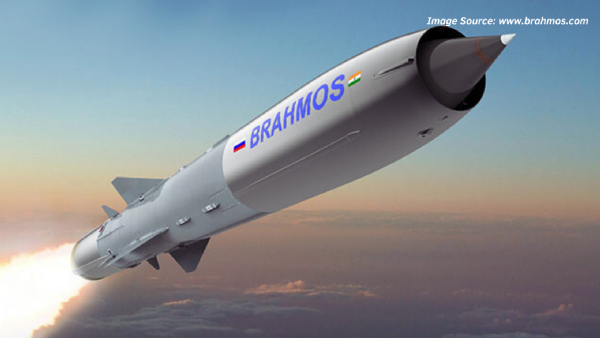Excitement over Usha Chilukuri
The Indian diaspora in the United States, particularly those involved in technology and finance, has found new political excitement with Usha Chilukuri. The wife of Trump VP pick JD Vance, Usha's Indian origins have energized the Indian diaspora. The prospect of a "son-in-law" as the US Vice President has engaged this community in the November elections, not just as voters but as campaign contributors, volunteers, and supporters. This development is particularly significant considering the rapid growth of the Indian diaspora, which has become the fastest-growing Indian ethnicity in the US over the past two decades.
Growth in the Tech Sector
The US-based Indian community has grown rapidly, driven by the tech boom, especially around the Y2K era. The number of Indian speakers in the US increased from 320,000 in 2016 to 1.23 million in 2024. Among the Indian diaspora, which is 4.9 million strong and growing, Telgu has become the third most spoken Indian language in America, after Hindi and Gujarati. With their tech orientation, most Indian speakers reside in California, Texas, and New Jersey. By 2017, the community had grown strong enough in California to establish the University of Silicon Andhra, offering courses in Carnatic music and Kuchipudi dance.
Rising Affluence
According to the Indian Mobility Report 2024, Andhra Pradesh and Telangana form the largest cohort of Indian students in the US, making up 12.5% of the total, with the majority pursuing STEM fields. Indians have long been considered the "model minority" but have faced backlash in recent times. This backlash has led Indian associations to advise their members not to flaunt their wealth and to engage locally in politics to ensure their concerns are addressed. With average household earnings exceeding $100,000, Indian-Americans are the highest-earning ethnic group in the US, with 70% holding college degrees, surpassing the American average in both wealth and education.
Political Engagement
Voter turnout among Indian Americans is higher than among other Asian-American groups, with a tendency to vote Democrat. The Chilukuri connection might sway some voters, but Indian-Americans make up only 1.3% of the US population and are scattered across states, limiting the overall impact of their votes. However, the influence of Indian-origin politicians is notably outsized, as seen with Kamala Harris and the two Indian-Americans on the 2024 presidential campaign trail, Ramaswamy and Haley. The affluent and educated Indian political touch is likely to have an impact that extends beyond the election.
#COUNTERING CHINESE MULTI DOMAIN , GREY ZONE, HIGH BREED WARFARE
Advantage India-Philippines wants to point more BrahMos missiles at China

Manila seeks additional India-made supersonic anti-ship missiles amid escalating sea tensions with China and doubts about US mutual defense backing. After a series of major maritime standoffs, the Philippines is in hot pursuit of more India-made BrahMos supersonic cruise missiles to point at China in the contested South China Sea.
The Philippine Marine Corps (PMC) plans to bolster its coastal defenses with two additional batteries of the shore-based supersonic anti-ship missile by 2026.
Xi Jinping Continues Business Power Grab Despite Economic Setbacks
Setting Economic Priorities Amid Slowing Growth
Chinese President Xi Jinping will set his economic priorities and reinforce his control at a Communist Party meeting this week, amid slowing growth and struggling consumers. Xi plans to appeal to private businesses to support his personal vision for China’s future as he outlines a much-heralded economic reform program.
Meeting with Business Leaders
In the lead-up to this important meeting, Xi has been engaging with business leaders, addressing the growing unease among foreign companies about the tightening restraints on their operational freedom. Despite these concerns, Xi shows no sign of altering his approach to powerful tycoons, whom he views as threats to party orthodoxy.
Stance on Over-Indebted Companies
Additionally, Xi remains steadfast in his refusal to allow over-indebted companies to collapse, indicating his commitment to maintaining strict control over China's economic landscape
How China Could Hobble the Internet: The Threat to Undersea Cables
Growing Concerns Over Undersea Infrastructure
Not long ago, a part of the British government asked RAND Europe, a think tank in Cambridge, England, to research undersea critical infrastructure. The think tank studied publicly available maps of internet and electricity cables, interviewed experts, and held focus groups. Halfway through the project, Ruth Harris, the leader, realized they had inadvertently unearthed many sensitive details that could be exploited by Russia or other adversaries.
Discovery of Sensitive Information
When Harris approached the unnamed government department with this discovery, they were shocked. "Oh my god. This is secret," was their reaction. Upon learning that Harris's team was drawn from all over Europe, the department demanded that the project be overhauled to include only UK personnel, saying: "This needs to be UK eyes only."
Undersea Cables as Military Targets
Western governments have quietly been concerned about the security of undersea cables, which carry most of the world’s internet traffic, for many years. However, this issue has recently come into sharp focus due to a series of murky incidents from the Baltic Sea to the Red Sea and a broader realization that infrastructure, of all sorts, is a target for subversion and sabotage.
Previously, a part of the British government asked RAND Europe, a think tank in Cambridge, England, to research undersea critical infrastructure. The think tank studied publicly available maps of internet and electricity cables, interviewed experts, and held focus groups. Halfway through the project, Ruth Harris, the leader, realized they had inadvertently unearthed many sensitive details that could be exploited by Russia or other adversaries.
Discovery of Sensitive Information
When Harris approached the unnamed government department with this discovery, they were shocked. "Oh my god. This is secret," was their reaction. Upon learning that Harris's team was drawn from all over Europe, the department demanded that the project be overhauled to include only UK personnel, saying: "This needs to be UK eyes only."
Undersea Cables as Military Targets

Western governments have quietly been concerned about the security of undersea cables, which carry most of the world’s internet traffic, for many years. However, this issue has recently come into sharp focus due to a series of murky incidents from the Baltic Sea to the Red Sea and a broader realization that infrastructure, of all sorts, is a target for subversion and sabotage.

No comments:
Post a Comment